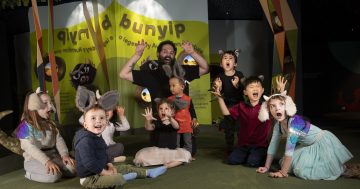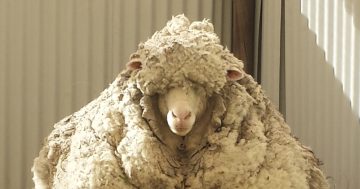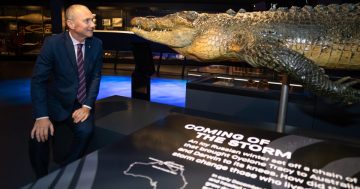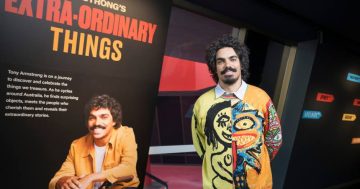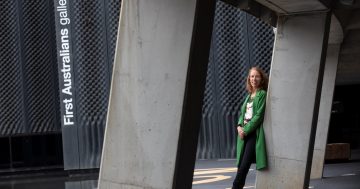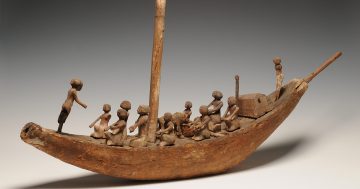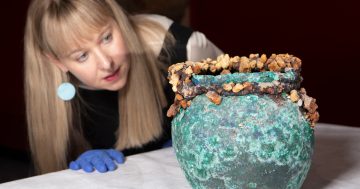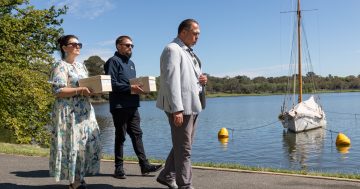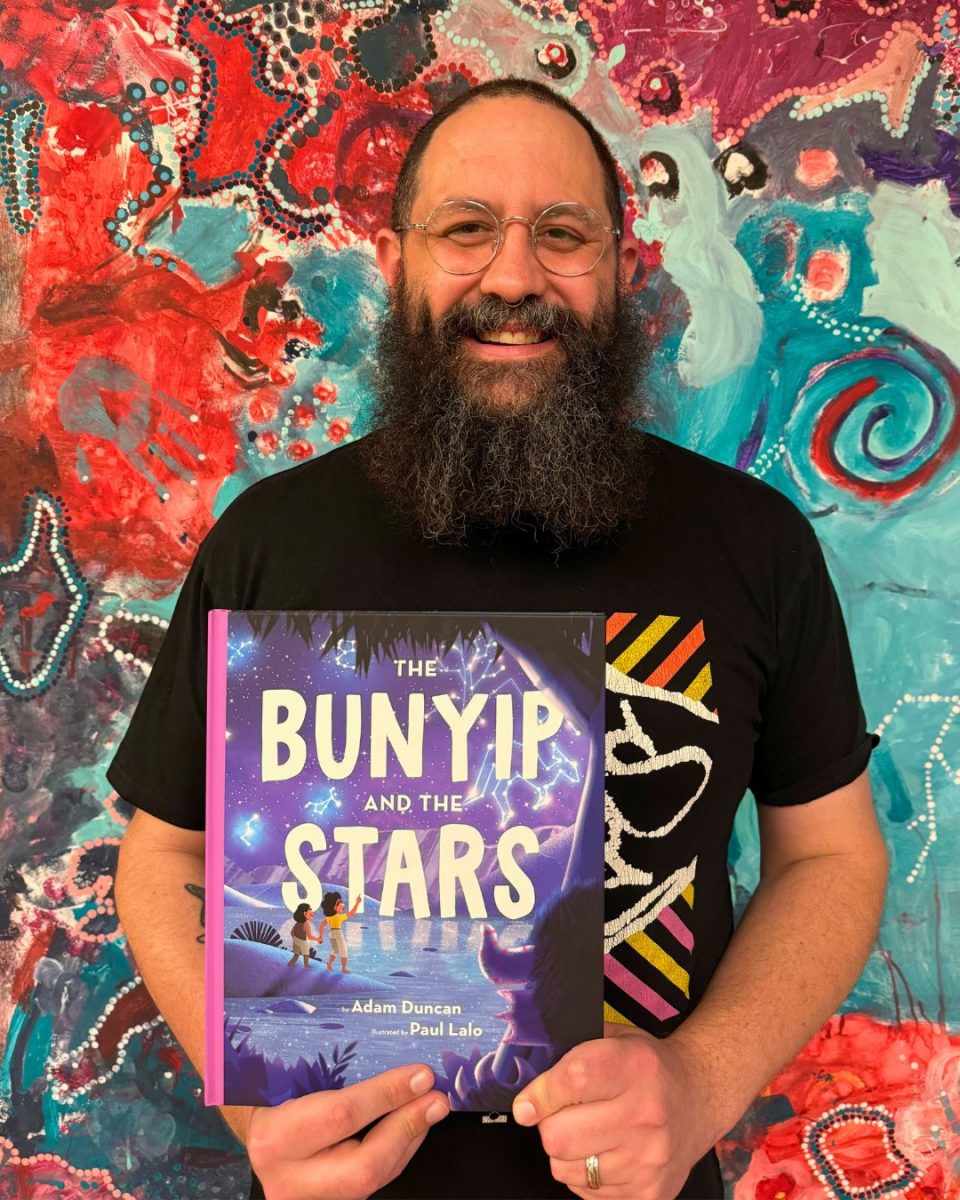
Author Adam Duncan with his new book, Bunyip and the Stars, in front of one of his artworks in the NMA’s Discovery Centre. Photo: Sofia Dalla Costa/National Museum of Australia.
Bringing First Nations stories to life is Adam Duncan’s passion, especially when they’re spoken word stories that have come down from generations and are in danger of being lost.
It’s also special when such stories reach a wider audience, as was the case when Adam recently won the Australian Museums and Galleries Association’s (AMaGA) Kids in Print award for his debut book, The Bunyip and the Stars.
The proud Biripi man and manager of the National Museum of Australia’s (NMA) onsite education programs said he was overwhelmed by the honour, which he described as “serendipitous”.
“I’m a first-time writer and I was lucky enough to connect with the museum when I was teaching preschool kids,” he explained.
“It was interesting to balance what felt like personal business, like writing this book, with day-to-day business, like working with the museum’s education team. You feel connected and separated at the same time.”
The Bunyip and the Stars was launched at the NMA in Canberra last year, the first in a series of five books exploring themes such as the importance of family bonds, connection to Country and the value of shared knowledge. All the books were inspired by the museum’s new immersive play space for children, the Tim and Gina Fairfax Discovery Centre.
Paul Lalo illuminates the story through striking 3D collage-style illustrations. Paul’s from the animation boutique Soymilk Studio, the same studio that developed the illustrations for characters and animals found in the discovery centre.
The Bunyip and the Stars is the combination of a Sky Country creation story and an adventure tale. It follows Ngariin (Big Sister) as she searches for Wumbirr (Little Brother) who has been captured by the fearsome bunyip. Ngariin needs to draw on her knowledge of Country, the bush and mob stories to rescue Wumbirr and escape the bunyip.
Adam said he developed the book using First Nations oral storytelling traditions and the help of the children from Wiradjuri Preschool and Child Care Centre at the University of Canberra, where he worked before heading to the museum.
“I feel so privileged to have been given the opportunity to make my story, known and loved by hundreds of young people with whom I’ve worked over the last decade, available to a much broader audience,” he said when the book was launched last year.
“This book is culturally significant, as it represents a continuation of Biripi cultural practice, and I am so glad to have been involved.”
But Adam said it was almost a book about a dragon – not a bunyip. He had been working with the children about astrology and exploration of the stars when they realised it was a bit dull and needed “something”.
“The kids wanted to put a dragon in the story, but that was more of a European thing, so we unpacked it a bit further and talked about bunyips as being Australian ‘monsters’.
“That was linked to a song I remember as a kid about Dot and the Kangaroo … it had something about a bunyip in the middle of it and that scared the pants off me when I was a kid.
“So that planted the idea of having a bunyip. They were also something that breached the colonial divide. Bunyips were here thousands of years ago.”
With his new passion for writing, Adam reckoned he had a few more stories “buzzing around in my head”.
“I didn’t have the opportunity to write these stories down,” he said, “until the NMA stepped in.”
The Bunyip and the Stars is published by the National Museum of Australia Press and is available online from the Museum Shop.












